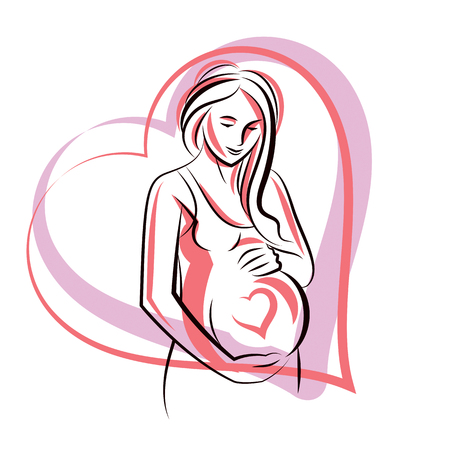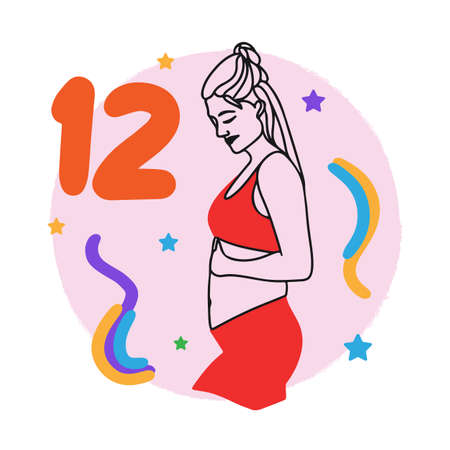Introduction to Safe Co-Sleeping in the UK
As a new parent navigating the whirlwind of sleepless nights, I quickly learned that co-sleeping—sharing a bed or sleep space with your baby—is a topic that sparks both curiosity and concern in the UK. While many parents are drawn to co-sleeping for its promise of easier nighttime feeds and extra bonding, it’s also an area surrounded by strong guidance and cultural debate. The NHS and organisations like The Lullaby Trust provide clear advice on how to make sleep as safe as possible for babies, particularly highlighting risks linked to smoking, alcohol, and parental health. Despite the official recommendations encouraging babies to sleep in their own cot in the same room for at least the first six months, co-sleeping remains common across British households. For many families—myself included—it often happens out of necessity during those exhausting early months when getting enough rest feels impossible. However, safety must always come first. In the UK, cultural attitudes towards co-sleeping are shifting; more parents are open about their experiences, seeking non-judgemental support and up-to-date information. Understanding current practices, prevalent trends, and official advice is crucial for making informed decisions about where and how your baby sleeps.
2. Smoking and Its Risks for Co-Sleeping Infants
As a new parent in the UK, I know first-hand how much advice we get about keeping our babies safe—especially when it comes to sleep. Among all the recommendations, one of the most important is about avoiding smoking, both during pregnancy and after birth. The risks associated with parental smoking are well-documented, and they become even more significant when we talk about co-sleeping with our little ones.
How Parental Smoking Impacts Infant Health
Smoking during pregnancy exposes your baby to harmful chemicals before they are even born, increasing the risk of low birth weight and respiratory problems. But the dangers don’t stop there. After birth, exposure to secondhand smoke can continue to affect your baby’s health, especially if you choose to co-sleep. Research from Public Health England and The Lullaby Trust highlights that babies exposed to cigarette smoke are at a much higher risk of Sudden Infant Death Syndrome (SIDS), particularly when sharing a bed with a parent who smokes.
Main Risks Associated with Smoking and Co-Sleeping
| Risk Factor | Explanation |
|---|---|
| Increased SIDS Risk | Babies exposed to smoking are significantly more likely to experience SIDS, with co-sleeping further elevating this risk. |
| Respiratory Issues | Cigarette smoke irritates delicate airways and increases the chance of infections like bronchiolitis and pneumonia. |
| Impaired Arousal Response | Babies exposed to smoke may not wake up as easily if they are in distress while sleeping, making co-sleeping more dangerous. |
| Residual Smoke on Clothing/Bedding | Even if parents don’t smoke in the bedroom, smoke particles linger on clothing and bedding, which can still harm infants. |
A Personal Perspective: Why This Matters in Everyday Life
I remember feeling overwhelmed by all the information when my baby arrived. Like many UK families, we considered co-sleeping to make night feeds easier. But learning about the increased dangers for babies whose parents smoke made us think twice. It’s not just about active smoking—passive exposure matters too. Even stepping outside for a cigarette doesn’t remove all risk because those harmful particles stick around on skin and clothes.
The NHS and leading UK parenting organisations are clear: If you or your partner smoke (even occasionally), it’s safest for your baby to sleep in their own cot in your room rather than sharing a bed. Quitting smoking is always best—for you and your child—but until then, keeping sleep spaces separate is an important step in protecting your baby’s health.

3. Alcohol Consumption and Night-time Safety
As a new parent in the UK, I’ve often heard people say, “Just have a glass of wine to help you wind down after a long day with your baby.” While it sounds tempting, especially when sleep is so precious, it’s essential to understand how alcohol consumption can seriously impact the safety of co-sleeping.
When either parent drinks alcohol before bed—even what might seem like a small amount—it significantly increases the risk during co-sleeping. Alcohol affects our awareness, reflexes, and ability to respond quickly to our baby’s movements or distress. For instance, after a family gathering where my partner had enjoyed just two beers, we decided not to co-sleep that night. We’d read stories from other UK parents who had done so without thinking twice and later regretted it because they slept far more deeply than usual and didn’t wake up as easily when their baby needed them.
Research supported by organisations like The Lullaby Trust highlights that parents under the influence of alcohol are less likely to notice if their baby is in an unsafe position or struggling to breathe. Sadly, there have been real cases reported in the UK media where alcohol played a role in tragic co-sleeping accidents. One mum from Manchester shared her story in an online parenting group: after celebrating a birthday with some prosecco, she fell into such a deep sleep she didn’t realise her baby had wriggled under the duvet until morning—thankfully, everything was fine, but it was a terrifying wake-up call.
It’s also important to remember that even if only one parent has been drinking and the other hasn’t, the risks don’t disappear. Babies can move or roll between adults during the night, and an impaired adult may not react quickly enough in an emergency situation. Many health visitors across the UK strongly advise against co-sleeping at all if either parent has consumed any alcohol.
For families who want to keep their baby close at night—something I completely understand as it can make breastfeeding and bonding much easier—the safest choice on any evening where alcohol is involved is to place your little one in their own safe sleep space, such as a cot or Moses basket beside your bed. It’s always better to err on the side of caution; I know I’d never forgive myself for taking an avoidable risk.
Parental Health and Its Influence on Safe Sleep
When thinking about co-sleeping with your baby in the UK, it’s not just about where or how you sleep, but also how you’re feeling as a parent. As a new mum myself, I quickly learned that your own health can have a big impact on whether co-sleeping is safe for your little one. Let’s take a closer look at three key factors—fatigue, medication, and mental health—and see how they might influence safe sleep practices.
Fatigue: The New Parent Reality
It’s no secret that new parents are often running on empty! Long nights and frequent feeds can leave us utterly exhausted. But extreme tiredness can put babies at risk during shared sleep because it makes it much harder to respond to their needs or notice if they’re in an unsafe position. In fact, many UK health guidelines warn against co-sleeping if you feel excessively tired or have had very little sleep over a long period. It’s something I really struggled with during those early weeks when every minute of rest felt precious.
Medication and Its Effects
Certain medications—whether prescribed by your GP or bought over the counter—can also affect your ability to safely co-sleep. If you’re taking anything that makes you drowsy or less alert, such as strong painkillers, antihistamines, or antidepressants, there’s an increased risk of deep sleep where you may not wake easily to respond to your baby. This table gives a quick overview of common medications and their potential impact:
| Type of Medication | Potential Effect | Safe for Co-Sleeping? |
|---|---|---|
| Painkillers (e.g., codeine) | Drowsiness, deeper sleep | No |
| Antihistamines (for hay fever) | Drowsiness | No |
| Antidepressants (sedating types) | Drowsiness, slower response times | No |
| Non-drowsy medication (e.g., paracetamol) | No significant effect | Possible (check with GP) |
Mental Health Matters
Mental health is just as important as physical health when making decisions about where your baby sleeps. Conditions like postnatal depression or anxiety—which are fairly common here in the UK—can affect judgement, increase fatigue, or even disrupt your regular sleeping patterns. If you’re struggling with your mental health, it’s always best to talk to your health visitor or GP before choosing to co-sleep.
Quick Tips for Parents in the UK:
- If you’re feeling extremely tired, try letting someone else take over for a bit while you rest.
- Always check with your doctor about any medication you’re taking before considering co-sleeping.
- If you’re having difficulties with your mental health, reach out for support from your local NHS services or parenting groups.
In Summary:
Your wellbeing has a direct impact on safe sleeping arrangements for your baby. By staying mindful of your own energy levels, any medication you’re taking, and your mental health status, you’ll be much better placed to make informed choices about co-sleeping that work for both you and your little one.
5. Practical Tips for Safer Co-Sleeping at Home
If you’ve decided to co-sleep with your baby, it’s important to make safety your top priority—especially when considering the risks posed by smoking, alcohol consumption, and parental health. Here are some practical, UK-focused tips for new parents to help you reduce risks and co-sleep more safely.
Make Informed Choices
First and foremost, familiarise yourself with NHS guidelines and resources from trusted organisations like The Lullaby Trust. These offer up-to-date advice on safe sleep practices tailored for families in the UK. If either parent smokes (even if not in the bedroom), or has recently consumed alcohol or medication that makes you drowsy, co-sleeping should be avoided altogether as this significantly increases the risk of SIDS (Sudden Infant Death Syndrome).
Create a Safe Sleep Environment
Your bed should have a firm, flat mattress—never use sofas or armchairs for co-sleeping. Keep pillows, duvets, and heavy bedding well away from your baby, and ensure there are no gaps where your little one could become trapped. Consider using a bedside crib or Moses basket if you want your baby close but separate during sleep.
Stay Smoke-Free
If you or your partner are trying to quit smoking, seek support from local NHS Stop Smoking Services. Avoid exposing your baby to smoke both before and after birth, as passive smoke can linger on clothes and hair even if you smoke outside.
Avoid Alcohol and Sedatives
Never co-sleep if you’ve had alcohol or taken medication that makes you less responsive. It’s easy to underestimate how even small amounts can affect your awareness during the night. If in doubt, put your baby in their own cot or Moses basket alongside your bed instead.
Know Where to Get Support
Don’t hesitate to reach out to your health visitor or local children’s centre for personalised advice—they’re there to support you. Parenting helplines such as Family Lives or NCT can also provide guidance specific to your family’s needs.
Trust Your Instincts—but Always Put Safety First
Every family is unique, so it’s normal to feel unsure at times. The best thing you can do is stay informed, follow UK guidance, and never be afraid to ask for help. By being proactive and cautious about smoking, alcohol, and overall parental health, you’re giving your baby the safest start possible while still enjoying those precious early nights together.
6. Support Services and Resources in the UK
When considering co-sleeping, especially if you are navigating the added complexities of smoking, alcohol use, or parental health concerns, its essential to know that there is support available across the UK. As a new parent myself, I found it incredibly reassuring to access professional guidance and community support to ensure our familys sleep arrangements were as safe as possible.
NHS Guidance and Health Visitors
The NHS provides up-to-date information on safe sleep practices, including how smoking and alcohol can impact your baby’s safety during co-sleeping. Your local health visitor is an excellent point of contact; they offer tailored advice based on your family’s unique circumstances. Many GP surgeries also have leaflets and run sessions about safer sleep for babies.
Charities Supporting Safe Co-Sleeping
Several UK charities specialise in infant sleep and can offer non-judgemental advice if you are worried about risk factors like smoking or drinking. The Lullaby Trust is particularly well-known for its Safer Sleep Advice line, online resources, and informative workshops for parents. Tommy’s and Baby Sleep Info Source (Basis) also provide evidence-based guidance and practical tips for families who co-sleep or bedshare.
Community Groups and Peer Support
If you’re looking for real-life stories or want to chat with other parents facing similar challenges, many local children’s centres run parenting groups where safe sleeping is openly discussed. Online forums such as Netmums or local Facebook parenting communities often have threads dedicated to sharing experiences with co-sleeping—helpful if you feel isolated or unsure about your choices.
Workshops and Practical Help
Across the UK, organisations like NCT (National Childbirth Trust) host workshops focusing on infant safety, which include sections specifically about sleep environments when there are additional health risks in the home. These sessions can be invaluable for learning practical steps to reduce risks if co-sleeping feels right for your family but you need extra reassurance.
Accessing Resources
If you’re not sure where to start, ask your midwife or health visitor for a list of recommended websites and local groups. Most NHS Trusts also have a dedicated page on their website about infant sleep safety, often linking directly to trusted charities and helplines. Remember, it’s always okay to reach out—getting support is an important part of keeping your baby safe while making choices that work for your family.


